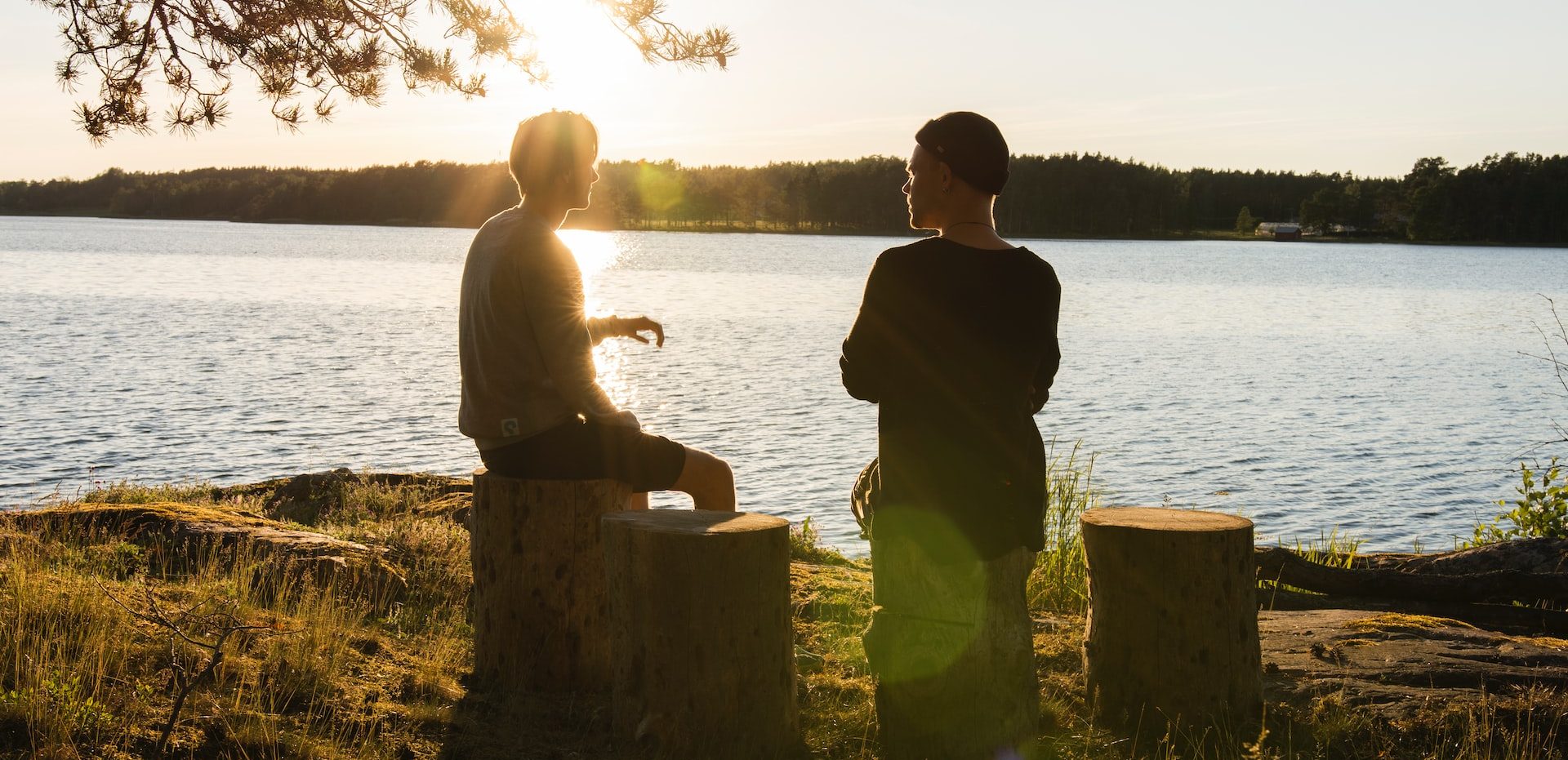New research from a Barna study on discipleship revealed four qualities common to disciplemakers, which I believe can help us not only understand the mindset of those who prioritize disciplemaking but also adopt this mindset ourselves.
For all US Christians, here is the distribution of the four key psychographic qualities (psychographic refers to measuring mental traits, abilities, and processes) identified in Barna’s work:
- 38 percent are optimistic for change,
- 34 percent are accountability driven,
- 36 percent are relationally motivated, and
- 41 percent are growth minded.
As we look more closely at these four qualities, let’s think about how we reflect this posture in our lives. May our mindsets begin to shift in the places where we need to adopt these qualities as our own.
Optimistic for Change
I can often approach life with a scarcity mindset. There isn’t enough time in a day. There aren’t enough resources to offer. There isn’t enough of me to go around. And because there isn’t enough, and I believe that what little I have won’t make a difference anyway, I want to hold on to what little I do have. I want to hoard my time, my energy, and my resources, believing all of it is limited and depends on my own effort and strength. I forget that God is a God who can bless lives even with my leftover crumbs, if I simply offer them to him (Matthew 15:24-28).
Disciplemaking can’t happen with a scarcity mindset. Only when we are optimistic for change do we believe we can and should have a daily impact on the world and on those immediately around us.
At the end of the day, if your life impacts even one other person for the better, you’ve made a whole world of difference. Think of the people around you. Whose life could you positively impact as a disciplemaker?
Accountability Driven
Early in college, I believed that some sins were okay to share with others (you know, like being too servant-like and too generous), but other sins should never see the light of day (like sleeping with your boyfriend or getting drunk), because then what would people think? Christians are supposed to have it all together!
But as I matured in the faith, I came to understand and appreciate the value of allowing safe people to see even the most wretched of my sins. When people who love me and love Jesus hold me accountable, they help me become more like Jesus. In fact, few things have contributed more to my growth in Christ. But exposing the most wretched parts of myself hasn’t come naturally to me—and doesn’t usually come naturally to any of us. As we see with Adam and Eve in the Garden of Eden, a product of our fallen nature is to instinctively hide the most vulnerable parts of who we are—the parts that we deem unacceptable to share and would render us unlovable if we did.
The journey I’ve been on to discover the value of accountability and mentorship is one I suspect most people share. Entering into any sort of accountability or mentoring relationship always involves some risk and vulnerability. You can never fully control how the other person will respond. Choosing to step into that kind of relationship may involve overcoming some of the lies we’ve believed about letting others into our lives. Many of us have been programmed—either through our American cultural context, our cultural backgrounds, or even previous relational trauma—to believe that we should never, under any circumstances, expose these vulnerable parts of who we are. To do so would mean we are weak or dumb or not enough or simply unlovable.
But that is a lie. I believe God calls us to enter into these accountability relationships with an unguardedness that can only come from believing in God’s tender goodness and having a growing trust that we are safe with those we’ve asked to hold us accountable. We were created to need one another to be our best selves in Christ. It is only when we recognize the value of accountability in our own lives that we are able to recognize how important it is to invest in the lives of others.
Relationally Motivated
In the book of Acts, we see the rise of the early church, the beginnings of the family of Christ—a ragtag group of people from different backgrounds, socioeconomic groups, ethnicities, genders, and social classes, all bound together by their unified faith in Christ. Acts 2 illustrates this beautiful relational commitment to one another:
[The believers] were continually devoting themselves to the apostles’ teaching and to fellowship, to the breaking of bread and to prayer. Everyone kept feeling a sense of awe; and many wonders and signs were taking place through the apostles. And all the believers were together and had all things in common; and they would sell their property and possessions and share them with all, to the extent that anyone had need. Day by day continuing with one mind in the temple, and breaking bread from house to house, they were taking their meals together with gladness and sincerity of heart, praising God and having favor with all the people. And the Lord was adding to their number day by day those who were being saved. Acts 2:42-47, nasb
The members from this new family of God were committed to one another’s growth and well-being. To use a feel-good Christianese word, they were convinced that they belonged to one another. And the multiplication of God’s people emerged from this belonging.
People who are relationally motivated have a sense of responsibility to invest in the spiritual growth of others. They not only believe they can impact other people’s lives, but they’re also open to others contributing to their own growth.
So how do we become more relationally motivated, especially as it pertains to those outside our families? Perhaps we need to broaden our definition of family to include the entire body of Christ and those who are seeking the kingdom of God. When I view those outside my family as my brothers and sisters in Christ, or future brothers and sisters, I feel a greater sense of responsibility and commitment to them. When I remember what it was like to taste freedom in Christ because someone discipled me, the desire to help someone else grow becomes overwhelming. I have what my brothers and sisters (current and future) are lacking to more fully experience God. How could I keep such a powerful treasure to myself?
Growth Minded
Much of our educational experience relies on passive learning, or learning that depends on teachers spoon-feeding information to us. Students typically have no say in what they learn. From elementary school to high school, in college degree tracks and even job training, we’re told what to study and what assignments to complete. The educational experience for many students begins and ends with passive learning, and their development comes to an abrupt halt after their formal education is complete. That’s several decades of arrested development. Yikes!
But we don’t have to stop learning. Active learning is more student directed, where students take the reins in their own development and courses of study. This requires self-motivation to think through the ways in which you desire to grow, to decide on a developmental process to get there, and then to actually take the necessary steps to pursue this development. Many never make the transition from being told what to learn to taking charge of their own learning.1
How do we begin to take charge of our growth? We envision the ways we desire to grow in the different areas of our lives, which are often shaped by our values, and we set some goals and action steps to move toward growth in those areas. Then we actually take those steps.
For example, a few of my values include presence, connection, and courage. The different areas of my life include my relationships with God, my family, and my friends; my home; and my work.
How do I desire to grow in my relationship with God? Well, I’d like to know him better and be present with him. One way I can actively do this is to connect with him by reading through my physical Bible in its entirety in a year. (I get too distracted by notifications to read on my phone.)
How do I desire to grow in my relationship with my friends? I’ve been thinking about discipling one of my friends for a while. One way I can actively live out my values for connection and courage is to ask her if she’d be interested and then to actually do it.
(Yes, I’m still building up the courage!)
Before I turned thirty, I made a thirty- before-thirty list—thirty new ways I wanted to stretch myself before I turned thirty. The list ranged from learning how to can tomato sauce; to reading through the New Testament, Proverbs, and Psalms in one year; to building a chicken coop and raising chickens in our backyard; to completing the entire workout program Insanity (it was, indeed, insane). Though I accomplished fewer than half of the goals on my thirty- before- thirty list, I stretched myself in about fifteen new ways that year, and that wouldn’t have happened if I hadn’t set any goals for myself at all. I call that a win for growth!
Developing the muscle for taking an active role in your personal growth and the growth of others around you is worth it. What are some ways you desire to grow in the different areas in your life? What are some ways you desire to help those around you grow? What are some ways you desire to grow in becoming a disciplemaker?




I’m an older guy that started learning to be a disciple at Ft Sill Oklahoma around 1977. God has moved me to become involved in a disciple making ministry at my church in Salem Oregon. I’m grateful for Craig Reynolds the Nav. rep that I knew at Ft Sill. One of the things Craig told me was to ask God to me the man he wants me to be. Through the years I have done that and I can see God answering that prayer. The things like quiet time and the TMS have sustained me in my walk, I am thankful for the Navigators and men like Craig who have impacted my life. I lost contact with Craig many years ago but I pray for him just the same.